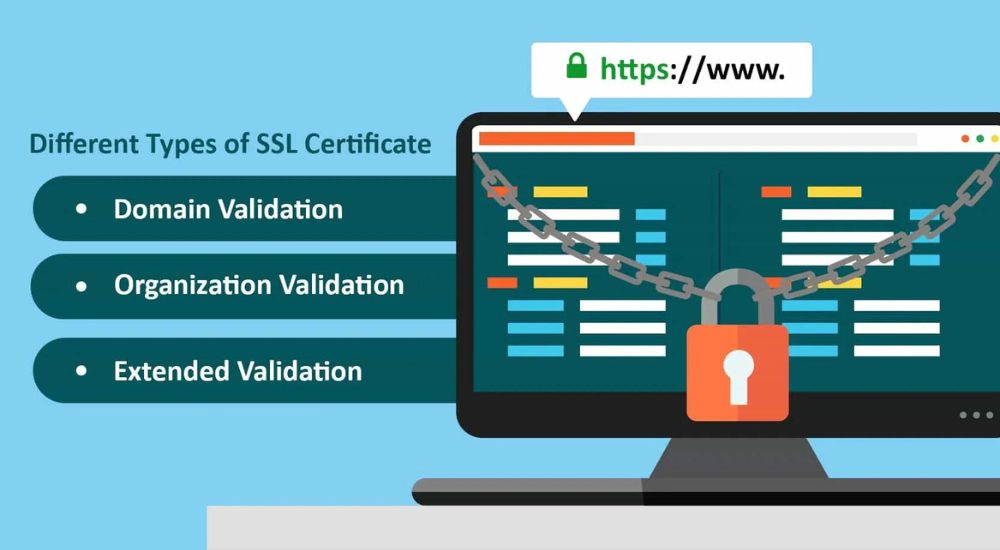SSL certificates are an essential part of website security. They protect data from being exposed, and they authenticate the sender so that no one but you can access your information online!
In this ever-changing cyber world, you need to be aware of how your data can potentially leak or become compromised. Educate yourself on the latest security measures and take steps now so that it doesn’t matter when a hack happens – there will already have been adequate time for prevention!
SSL certificates provide a measure of site security that has become the modern standard. They protect information on web resources from snooping and hacking attempts by providing an extra layer for protection through encryption technology
In recent years, SSL installation procedures have changed dramatically as new innovations are made available such as Let’s Encrypt which is extremely easy to use!
What exactly is an SSL certificate?

Before delving into why your site requires an SSL certificate, it is worth discussing the concept itself. The SSL protocol (Secure Sockets Layer, also known as the “level of protected sockets”) is a cryptographic protocol that ensures reliable data transfer over the network. It ensures a secure connection between a user’s browser and a resource.
If SSL is enabled on the site, all data is sent over HTTPS — a secure version of the HTTP protocol. It encrypts user data before sending it to the site’s owner via the TCP transport protocol.
In other words, encryption conceals all information transmitted by the user from third parties such as operators, Wi-Fi administrators, and providers.
NOTE: TLS (Transport Layer Security) has largely replaced the SSL protocol. However, because the abbreviation « SSL » has become inextricably linked with this technology, the old and new names of the protocol are used as synonyms or written together, separated by a slash — TLS / SSL. Furthermore, there is no fundamental distinction between the SSL and TLS protocols.
How the SSL protocol works
As you know, the basis of all coding methods is a key that helps encrypt or read information. The SSL protocol uses an asymmetric cipher with two types of keys:
- Public – This is, in fact, an SSL certificate. It encrypts data and is used to send user data to the server. A visitor, for example, enters his bank card number on the website and clicks the « Pay » button.
- Private – Required for message decoding on the server. It is never transmitted with information, as is the case with a public key, and it is always stored on the server.
An SSL certificate is required for the site’s owner to process such connections. This is a digital signature that is unique to each platform.
What’s inside a SSL certificate
The SSL certificate may contain the following important information:
- Domain of the site on which the certificate is installed.
- Name of the owner company.
- Country, company residence permit city.
- Validity period of the SSL certificate.
- Information about the certification center.
Certified and Unaudited Certificates
Trusted certification centers or certification centers are the primary source of SSL certificates ( Certification authority, CA ). These are organizations that have undeniable authority in the IT services market and use the well-known open cryptographic key. In most browsers, their list can be found in the “Trusted Root Certification Centers” section.
A digital signature certified by a certificate issued by such a center proves the authenticity of the domain name and establishes the owner’s legal right to use the secret key. It is referred to as a trusted one.
Unspecified signatures include:
- Self-Signed SSL certificates are not considered to be reliable by most browsers, which results in a warning message being issued.
- Unverified Certificates: It’s a good idea to verify the authenticity of any certificates you purchase. Unverified ones may be seen fine, but unchecked “centers” sell them out right without checking their validity or origin!
- Digital signatures issued by centers that have lost trust: SSL certificates from the Symantec certification center, which Google has accused of issuing a large number of illiquid certificates, fall into this category.
Types of SSL Certificates
There are three main options for verification methods:
Domain Validation (DV) — a domain confirmation. It also encodes data for HTTPS transmission. It is available to both legal entities and individuals, and it is usually established within three hours.
OV (Organization Validation) — in addition to data security, it ensures the legitimacy of the company to which it belongs. Within three days, organizations must confirm their contact number.
EV (Extended Validation) is similar to the previous option, but not only the company’s commercial activities, but also its tax activities, are subject to verification. The « green » address bar — the allocation of the address with the additional green frame — confirms the availability of the certificate with advanced verification ( Green Bar ). A certificate of this type can be obtained in 5 days.

There are additional types of SSL:
Wildcard SSL — To protect a large number of subdomain names at the root of a single domain, wildcard SSL will be required.
UC (Unified Communications) or SAN (Subject Alternative Name) — can protect not only a large number of subdomains, but also external and internal domains.
SGC (Server-Gated Cryptography) — allows for 40-bit extensions, which are useful for operating systems and older browsers.
CS (CodeSigning) — software product certificates that allow users to safely download software from developer sites.
Choosing A Certification
Choosing the right certificate for a company can be little more complicated:
- If this is a business site with the goal of informing visitors about the organization’s activities, you can install DV SSL. It will prevent the appearance of a window in the browser with information about the site’s insecurity and will reliably encode the data. Usually provided for free.
- An EV signature should be linked to resources related to transactions and other types of money access. It will confirm the company’s authenticity, and a green strip with the company’s name will appear in the browser line. This is true for banks, the media, and payment systems.
- OV SSL should be installed by online stores, forums, and charities. Such site are practically vulnerable to intruders. However, users will want to confirm the legitimacy of the company with which they intend to place an order or invest their money. SSL certificates with organization verification are available for a fee only.
Conclusion
In conclusion, an SSL certificate is a digital certificate that is used to authenticate a website and to encrypt communication between a website and a visitor’s browser. SSL certificates are important because they help to protect sensitive information, like credit card numbers and login credentials, from being intercepted by third parties. They also help to build trust with visitors and search engines by showing that a website is legitimate and secure.

